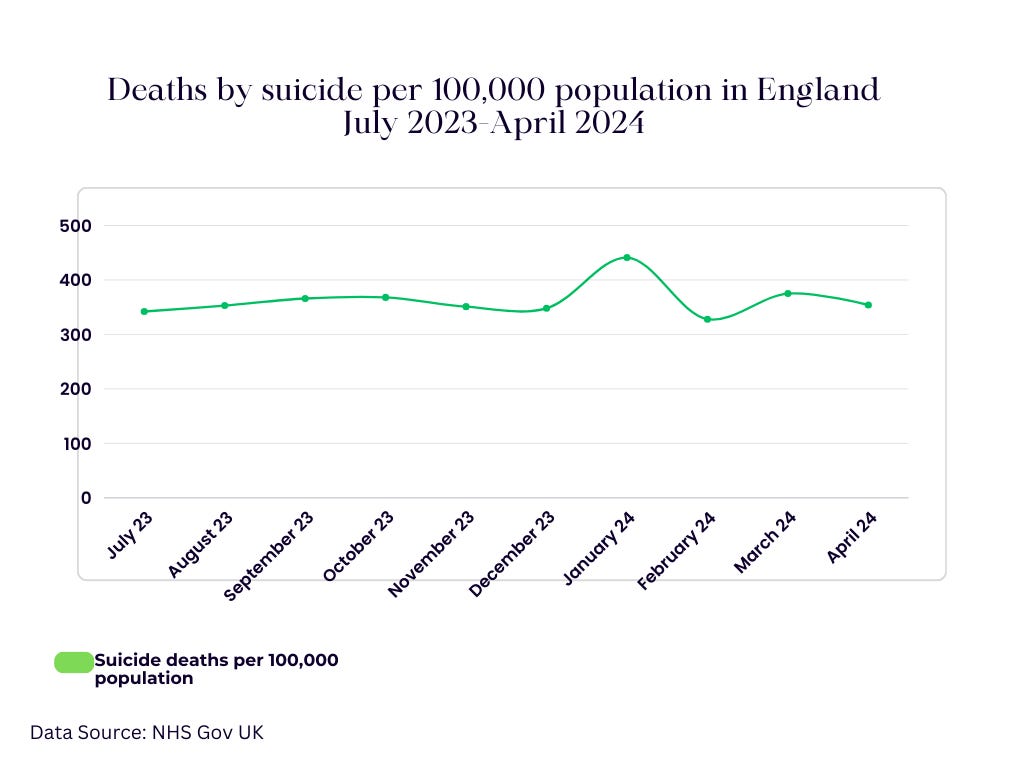Christmas Fear: Navigating the Ups and Downs of the Festive Season
'Seasonal Affective Disorder' awareness and mental health tips to keep yourself healthy and happy over the Christmas period
Many of us look forward to Christmas time every year, it’s a magical time for creating family memories and eating a delicious, traditional meal. Our hearts tingle to the familiar sound of Christmas music, frosty mornings and dark, festive evenings.
However, winter is not a happy time for everyone. ‘Winter Blues’ or ‘Seasonal Affective Disorder’ (known as SAD) can come crashing in at any time; and can reoccur every year. ‘SAD’ can be so extreme that every year in the lead-up to Christmas, sufferers will be filled with stress and anxiety. This year especially, as the nation has been battling the cost-of-living crisis and Christmas is not a ‘cheap’ event for any family.
NHS GP Dr Lowri Kew told followers in a recent blog, that ‘winter blues are a real thing’ and to ‘reach out’ to friends and family if life feels like it’s becoming overwhelming. The biggest issue that winter depression generates is its discreteness and the fact it can be so well-hidden. This is the same for every type of depression, however, no one expects you to be disheartened at Christmas time and therefore, can go easily unnoticed. Dr Kew added that the reduction in sunlight can affect the body’s internal clock, ultimately lowering our mood and causing an imbalance in brain chemicals. Further, the colder temperatures can make everything ‘harder’. For example, getting up and staying motivated becomes extremely difficult in the freezing, dark mornings resulting in long-term depressive moods. Colder temperatures also result in spending longer inside, which can damage mental health as it becomes a habit to never leave the house.
NHS Statistics show that 1 in 20 people in the UK are diagnosed with SAD, with men more likely to be diagnosed than women. It’s suggested that many men conceal their feelings, and lock away their emotions which results in long-term mental health issues.
Why could this be?. . .
As the head of the family, men are expected to work hard towards Christmas and earn the financial foundations to provide their family with exciting gifts. Ultimately, men suffer in silence with mental health and according to NHS UK Suicide statistics, sadly, many more men take their lives than women.
Of course, this can happen to mothers too, as the stress escalates with the pressures of creating a magical Christmas for their loved ones, leading to recurring winter depression.
The graph shows a spike in male suicides in the lead-up to winter, with a small drop in December and then a huge peak in January. This sadly depicts that men in particular are suffering over the winter period. As you can see from the graph, suicides spiral in January. Further suicide data (for all genders in England) also points to January being the trigger month for most cases of seasonal depression. January is an anti-climatic month; there’s a huge ‘come down’ after the buzz of the festive period and suddenly there’s enormous stress about money and the year ahead.
The data highlights that depression elevates in January; with dark, cold mornings and various worries about the year ahead: many of these would have been caused by ‘SAD’.
Please reach out for help if you need it.
Seasonal Affective Disorder can affect anyone, so this a reminder to check up on your friends and family during the dark, winter months and the lead-up to Christmas.
What are the main symptoms of ‘SAD?’
Symptoms of ‘SAD’ include: feelings of despair, low self-esteem, worthlessness, tearfulness, feeling stressed, becoming less-sociable and a general feeling of ‘dread’ for winter months/Christmas. Dr Lowri’s NHS blog urged people who were struggling to contact their local counselling service or local mental-health charity such as Samaritans or Every Mind Matters.
Helpline Numbers Available throughout Christmas:
Samaritans - 116 123
Age UK - 0800 678 1602
Women’s Domestic Abuse - 0808 2000 247
Men’s Domestic Abuse - 0808 8010327
Shelter - 0808 800 4444
Bereavement - 0800 435 455
National Debt Line - 0808 808 4000
ChildLine - 0800 1111
NHS - 111
Police 999/112/101
You may not need these through Christmas, but someone else will.
How can ‘SAD’ affect students during winter?
For university students Christmas and the transition into the new year can be extremely stressful as deadlines are constantly appearing, and the workload increases. Further, third-year students may be facing exams and have a ‘guilty-conscience’ over completing work towards their dissertations. Mental health has a huge impact on students and their work, and it is crucial that during a university break students take time to look after their physical and mental wellbeing. According to NHS data, Mental Health organisations and counselling services across England have spiked patient referrals over the winter period. The graph below depicts NHS Mental Health referrals between JUST November 2021 and January 2022.
Tribal Group Research shows that student mental health is particularly vulnerable during the winter months, due to important deadlines and financial strains for the new year. According to a survey generated by the National Union of Students (UNoS) 78% of students reported experiencing mental health struggles during the Christmas period.
It is pivotal that students take time away from studying and allow their brains to relax.
Further research depicts that the lack of routine over Christmas and pressure to socialise can result in feeling isolated and miserable.
Seeking support is the key to staying well over the winter period, for everyone; not just students. Mental health services are available throughout the festive season, and there is further support via university campuses and online helplines and platforms.
The ‘come-down’ after Christmas is usually the main trigger for various mental health issues including depression, isolation and anxiety. However, the new year is a fresh opportunity for engaging in student community activities. Many universities provide campus based community events that can generate new friendships, new interests, and a sense of belonging which can enhance feelings of positivity and happiness.
There’s also support networks such as clubs and societies; which host themed parties and volunteering events. If you are a student struggling, please research these opportunities via your university’s website.
There’s always help available!
A Sky News article describes having ‘‘seasonal affective disorder’’ as a ‘harrowing’ experience and in some cases, so debilitating that people are unable to work as it impacts day-to-day life. Moreover, young people aged between 16 and 30 are ‘more likely’ to be diagnosed as they are faced with challenges such as financial struggles, family difficulties and fewer daylight hours resulting in getting less done.
NHS Data shows that over 38,000 people in England aged 18-25 and over 1.2M aged 26-64 referred themselves in 2022/23 to counselling service, ‘Talking Therapies’. Furthermore, if we look more specifically; there were over 1M females (aged 18-25 & 26-64 combined) and over 500,000 male referrals (for the same age groups). This highlights that collectively, there are more female referrals over the two year period.
Mental health issues are inclusive and can happen to everyone. Many university students, whether studying full or part-time will be within one of these ages.
However, we know from the data below (men suicides vs women) that men are more likely to conceal their mental health struggles, and be reluctant in reaching for help. In comparison to women who are usually more open to sharing feelings and receiving help from professionals.
This is YOUR sign to watch your favourite film, order a takeaway, meet up with your friends, eat some cake and just do whatever puts a smile on your face this winter.
Tips for self-care this festive period:
Avoid too much caffeine and alcohol (I know it's hard during Christmas!)
Get some vitamin D (go for a wintery walk)
Eat well!
Get enough sleep and rest
Spend time with family and do something you enjoy!












